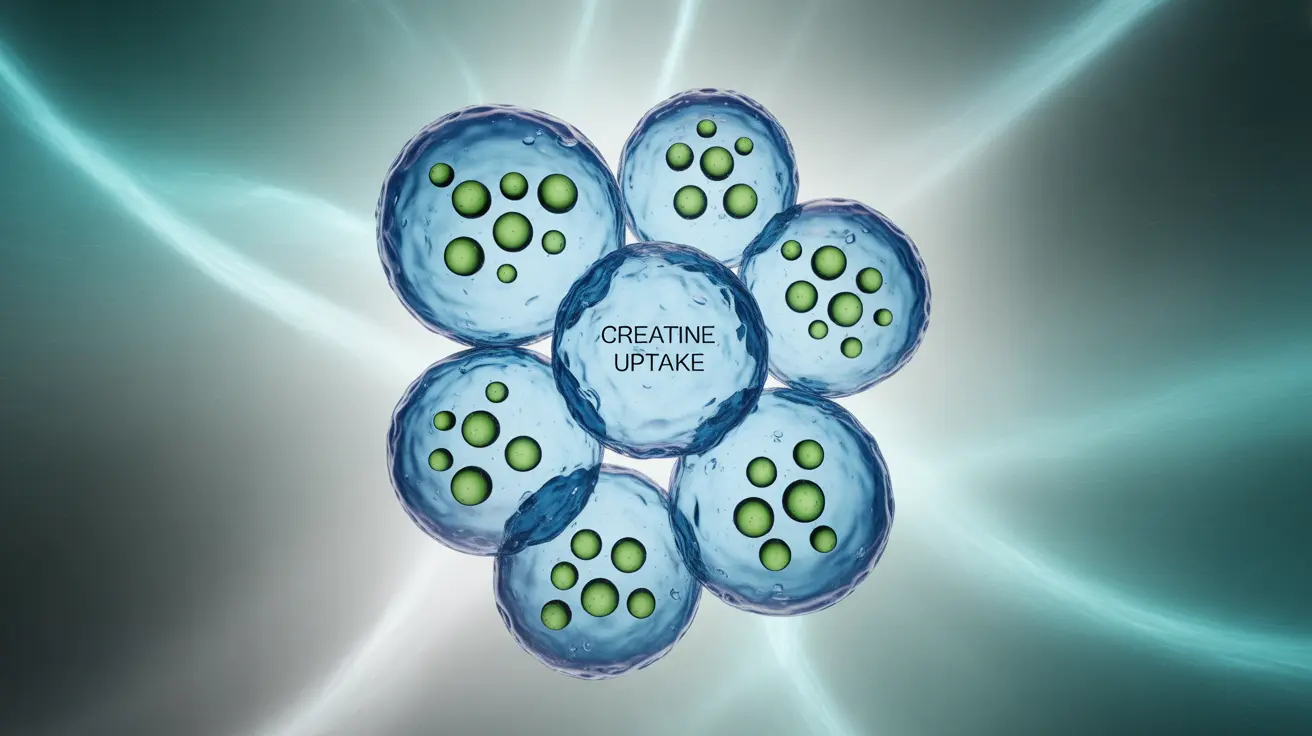If you're considering taking creatine supplements, you might be wondering about their effects on your body weight. Understanding how creatine influences weight changes is crucial for making informed decisions about supplementation and managing your fitness expectations.
Creatine is one of the most well-researched sports supplements available, and while it can indeed affect your weight, the relationship between creatine and weight gain is more nuanced than many people realize. Let's explore the different ways creatine impacts body weight and what you can expect when starting supplementation.
How Creatine Affects Body Weight
Creatine supplementation typically leads to weight changes through two primary mechanisms: increased water retention in muscle cells and enhanced muscle mass development when combined with resistance training.
Initial Water Weight Gain
When you first start taking creatine, your muscles will store more water. This happens because creatine draws water into your muscle cells, a process known as cell volumization. This effect is completely normal and actually beneficial for muscle function and growth.
Muscle Mass Development
Over time, creatine can help you build more muscle mass when combined with proper resistance training. This is because creatine helps provide energy for high-intensity exercise and supports protein synthesis, leading to genuine increases in lean muscle tissue.
Understanding the Loading Phase
The loading phase is when most people notice the most dramatic weight changes. During this period, typically lasting 5-7 days, you'll take a higher dose of creatine to saturate your muscle stores quickly.
Expected Weight Changes
During the loading phase, you might experience weight gain of 2-4 pounds, primarily due to increased water retention in your muscles. This initial weight gain is temporary and shouldn't be confused with fat gain.
Long-Term Effects on Weight
After the loading phase, your weight may stabilize as your body adjusts to regular creatine supplementation. Any additional weight gain is more likely to come from increased muscle mass rather than water retention, especially if you're following a consistent strength training program.
Distinguishing Between Water Weight and Muscle Gain
To determine whether weight gain is from water or muscle, consider these factors:
- Timing of weight gain (rapid gains in the first week are typically water)
- Changes in strength and performance
- Body measurements and appearance
- How your clothes fit
Managing Weight Changes
If you're concerned about weight gain from creatine, remember that:
- The initial water weight gain is temporary and beneficial
- You can skip the loading phase for more gradual weight changes
- Proper hydration is essential while taking creatine
- Regular exercise and a balanced diet remain crucial for body composition
Frequently Asked Questions
Does creatine make you gain weight due to fat or water retention?
Creatine primarily causes weight gain through increased water retention in muscle cells, not fat accumulation. Any additional weight gain over time is typically from increased muscle mass when combined with resistance training.
How much weight can I expect to gain during the creatine loading phase?
During the loading phase, most people gain between 2-4 pounds, primarily from increased water retention in muscle tissue. This weight gain typically occurs within the first 5-7 days of supplementation.
Can creatine cause bloating or swelling in muscles, and is this harmful?
Creatine can cause temporary muscle fullness or "volumization" due to increased water content in muscle cells. This effect is not harmful and actually helps support muscle function and growth.
Does long-term creatine use lead to permanent water retention or fat gain?
Long-term creatine use does not lead to permanent water retention or fat gain. While your muscles may retain more water while supplementing, this effect is reversible if you stop taking creatine. Any lasting weight gain is typically from increased muscle mass.
How can I distinguish between weight gain from muscle growth versus water retention when taking creatine?
You can distinguish between muscle and water weight gain by tracking your strength gains, taking body measurements, and noting the timing of weight changes. Rapid weight gain in the first week is typically water, while gradual increases accompanied by strength improvements usually indicate muscle growth.




